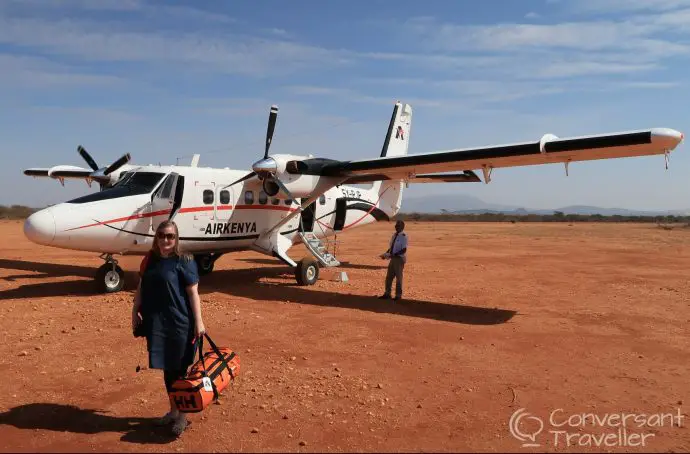You may be looking forward to your next travel adventure and your opportunity to enjoy new sights and bond with your loved ones. For the very best outcomes, you’ve likely poured your heart, soul, and a fair share of money into your travel planning.
However, no matter how airtight your travel planning process may be, emergencies can still occur and you shouldn’t rule them out. To prevent unexpected costs from ruining your overall experience, you’ll want to stay on the pre-emptive side and have backup plans in place at the same time.
You can pare down the risk of unplanned expenses by knowing what to look out for during your travels, and budgeting or planning accordingly. Here are some factors that may contribute to unexpectedly high travel costs and how you can avoid spending a fortune when things go awry:
1) Medical Expenses

When a medical emergency happens, it will always end up costing money. Medical costs can easily double if the said emergency happens abroad. After all, you’d be dealing with a different health system than what you’re used to in your home country, and your status as a tourist might mean having to pay more. While of course it can be hard to just “watch out” for emergencies as their very nature makes them unpredictable, you can still take proper caution to ensure that you won’t be dipping into your savings to pay for medical expenses.
For instance, if your travel group is planning on doing more intense activities such as hiking, rock climbing, rafting, and the like, then make sure you follow your guide’s every instruction. Wear the proper safety equipment as well.
You can also save yourself from heartache and from high medical expenses by purchasing travel insurance beforehand. Your insurance will alleviate some of the costs of an accident should it happen, and it will be worth it for your added peace of mind about yourself and the other people in your travel party.
2) Clothing
New clothes may also be part of your travel plan, especially if you’re going to a country that has a completely different weather than what you’re used to. But if you truly need to buy new clothes, a good rule of thumb is to at least make sure that the clothes you’ll buy are timeless pieces that can be used on different occasions. They should also be of high quality, and you shouldn’t want to replace them often due to easy wear and tear.
Among the staples that you should invest in are a warm coat for colder seasons, well-fitting leggings that are comfortable for long walks, quality shirts for everyday wear during the trip, and swimwear for days that you’ll spend out on the ocean or on the lake. Shop leggings and other essentials from brands known for their quality and durability, which will lessen the cost of having to buy new clothes every time.
3) Baggage Fees

If you’re not mindful of the weight of your baggage, you may run into additional fees while boarding. You’ll want to avoid being slapped with such fees, as well as the additional hassle of opening your luggage in the airport to unload various items and shuffle them between bags.
To prevent problems like these, be sure to check the weight limit allowed by your flight. Remember that some smaller domestic airlines have much smaller weight limits than the larger international carriers. Then, purchase a travel scale and weigh your luggage at home to ensure it’s not overweight. Travel light (and keep your spirits light) with the assurance that you won’t encounter trouble with your bags before check-in.
4) Weather Changes
Many travellers choose to save money by booking off-season flights. But this also comes with the possibility of experiencing poor weather during your visit. If you don’t have the proper clothing or gear to accommodate such extreme weather changes, then you might end up having to buy some from the local stores—which could then result in hefty additional costs on top of the travel expenses you already paid.
To prepare for this, be particular about checking weather forecasts or reading up experiences of people who’ve travelled to that same country during the same time frame. Pack appropriate clothing and travel gear—like a jacket, a hat, and an umbrella—so that you’re fully prepared should inclement weather strike.
5) Transportation

Not having enough information about your transportation options during your trip can surely put a dent in your budget. Instead of taking whatever option may be available and racking up expenses after your trips, learn the most efficient routes and which modes of transportation are both affordable and reliable.
Be sure to read up travel anecdotes that can offer some perspective on cheaper, lesser-known routes instead of more popular ones. For example, a cab to your itinerary might seem like the most convenient option at first, but a train ride could be just as comfortable at a fraction of the price.
6) Data or Roaming Charges
Sending text messages or using mobile data while abroad may result in hefty additional charges, so make sure you’re well aware of your phone’s coverage to avoid them. Fortunately, local SIM cards have become widely available at many destinations, which will make it easier for you to keep communication charges at a minimum. Find out where you can order or pick one up so that you start using it as soon as possible upon landing.
You can also read up on where to obtain free Wi-Fi in your destination country. Just be careful about where you connect, as public Wi-Fi networks aren’t as secure as private ones. To err on the side of caution, do not use public Wi-Fi when opening your mobile banking accounts or other sensitive applications.
Planning ahead is your best bet for enjoying a hassle-free travel experience. Don’t let unexpected costs catch you off guard; instead, keep them from happening or cushion their impact with the tips listed in this article. Your foresight will be well worth it in terms of how much you can immerse yourself in your trip without being unnecessarily weighed down!





